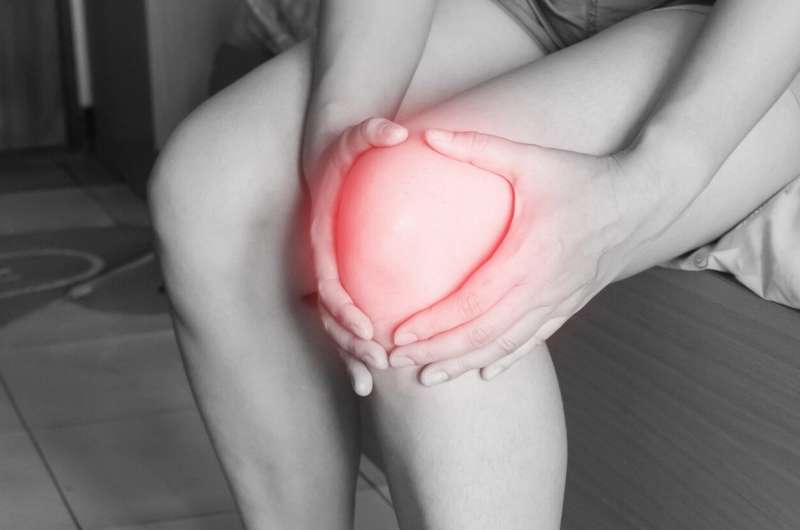This article has been reviewed according to Science X's editorial process and policies. Editors have highlighted the following attributes while ensuring the content's credibility:
fact-checked
peer-reviewed publication
trusted source
proofread
New study calls into question the superiority of stem cell therapy for treating knee pain

Characterized by extensive damage to joints and debilitating pain, osteoarthritis (OA) impacts millions of people worldwide and has long posed a substantial clinical and economic burden.
In spite of advances in diagnosis, medications, and short-term pain management solutions, the elusive goal of a disease-modifying OA drug has remained out of reach. In recent years though, the use of stem cell therapy has gained traction as a promising alternative to surgery and for improving patients' quality of life.
Now, an Emory team of investigators in collaboration with other recruitment sites throughout the nation has explored the potential of mesenchymal stem cells as a game-changing treatment option for knee OA, one of the most common causes of chronic knee pain. This type of treatment seeks to harness the ability of a patient's own cells to repair damaged tissue. However, the availability of robust data from well-designed randomized controlled trials has been limited, particularly in comparison to the gold-standard of treatment for knee OA, corticosteroid injections (CSI).
The initial findings of this study, which were just published in Nature Medicine, describe a first-of-its-kind randomized clinical trial to identify the most effective source of cellular injections for knee OA. The research team compared three types of cellular preparations, including autologous bone marrow aspirate concentrate (BMAC), autologous stromal vascular fraction (SVF), and allogenic human umbilical cord tissue MSCs (UCT) against CSI.
The primary outcome measures were the visual analog scale (VAS) and the Knee Injury and Osteoarthritis Outcome Score (KOOS) for pain from baseline to one year. The question driving the research was whether cell therapies could outperform corticosteroids in the treatment of knee osteoarthritis at the one-year mark.
While the findings showed each group had a measurable improvement in pain and function, there was no significant advantage to using any of the tested cell products compared to the gold standard anti-inflammatory corticosteroid treatment at the 12-month follow-up regarding the change in VAS pain score from baseline. Similarly, the analysis of the KOOS pain score produced consistent results, with no significant differences between groups at the 12-month mark in the change in score from baseline.
"The study demonstrated no superiority of any cell therapy over corticosteroids in reducing pain intensity over the course of a year," says Scott D. Boden, MD, director of the Emory Orthopaedics and Spine Center, and a senior author on the study. "While there is much enthusiasm about the regenerative capacity of stem cells, the findings call into question the comparative effectiveness of various injections for knee osteoarthritis and underscores the importance of a personalized approach in selecting the right treatment for each patient's unique needs."
The study's extensive reach also extended to evaluating the safety of these procedures measuring every adverse reaction, ranging from mild joint discomfort and swelling to unrelated hospitalizations. Importantly, the study found no study-related serious adverse events or symptomatic knee infections across any of the treatment groups at any point during the follow-up.
According to Dr. Boden, future papers from the ongoing analysis of the data will determine if certain subgroups of patients might preferentially benefit from one of these treatments more than another. The findings offer an important step forward in answering key questions about the comparative effectiveness of certain OA treatment options, but more in-depth analysis using MRIs and cellular analysis of each injectate will continue to help inform standards of care.
More information: Ken Mautner et al, Cell-based versus corticosteroid injections for knee pain in osteoarthritis: a randomized phase 3 trial, Nature Medicine (2023). DOI: 10.1038/s41591-023-02632-w


















